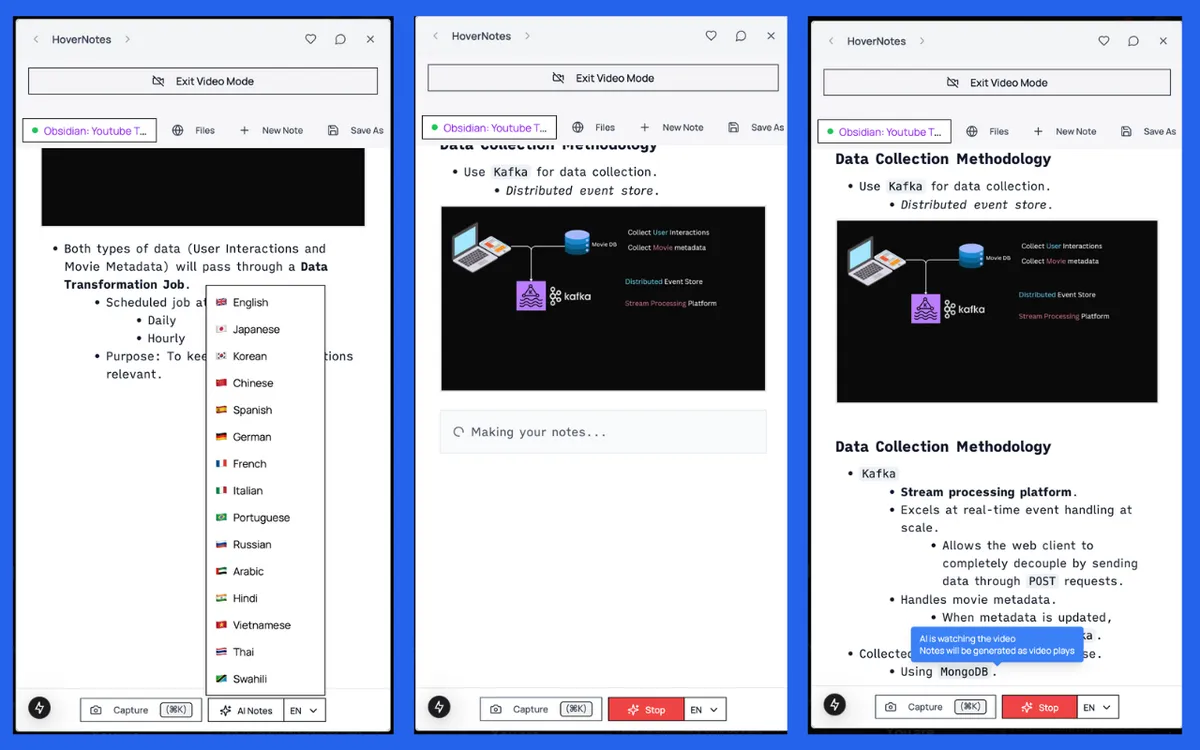10 Productivity Tips for Better Note-Taking
Effective note-taking is a skill that can dramatically improve your productivity, learning, and information retention. Whether you're in meetings, lectures, or brainstorming sessions, these tips will help you capture and organize information more effectively.
1. Use the Cornell Note-Taking System
The Cornell system divides your page into three sections:
- Notes: Main content area for your notes
- Cues: Keywords and questions in the left margin
- Summary: Key takeaways at the bottom
This system encourages active engagement with your content and makes review much more effective.
2. Develop Your Own Shorthand
Create abbreviations and symbols for commonly used words and concepts:
w/= withb/c= because→= leads to, results in*= important?= question or unclear
3. Use Hierarchical Structure
Organize your notes with clear hierarchies:
# Main Topic
## Subtopic 1
- Detail A
- Detail B
## Subtopic 2
- Detail C
4. Color Code Your Information
Use different colors for different types of information:
- Red: Important deadlines or critical information
- Blue: Actions items or tasks
- Green: Ideas or suggestions
- Yellow: Questions or areas needing clarification
5. Leave White Space
Don't cram everything together. White space helps:
- Make your notes more readable
- Allow room for additional thoughts
- Reduce cognitive overload when reviewing
6. Review and Revise Within 24 Hours
Research shows that we forget 50% of new information within an hour. Review your notes within 24 hours to:
- Fill in gaps while the information is fresh
- Clarify unclear points
- Add additional insights
7. Use Digital Tools Effectively
10x Your Note-Taking Productivity
Apply these productivity tips with smart AI assistance. HoverNotes handles the heavy lifting while you focus on understanding and connecting ideas.
Modern note-taking apps like HoverNotes offer features that paper can't:
- Search functionality: Find any note instantly
- Tags and categories: Organize across topics
- Links: Connect related ideas
- Sync: Access notes across all devices
8. Practice Active Listening
Focus on understanding rather than transcribing:
- Listen for key concepts and themes
- Identify the speaker's main arguments
- Note examples that illustrate important points
- Ask clarifying questions
9. Create Visual Elements
Incorporate visual elements to enhance understanding:
- Mind maps: Show relationships between concepts
- Diagrams: Illustrate processes or systems
- Charts: Compare different options
- Sketches: Capture visual information
10. Develop a Consistent Review System
Create a regular schedule for reviewing your notes:
- Daily: Quick scan of today's notes
- Weekly: Review and organize the week's content
- Monthly: Connect themes and identify patterns
- Quarterly: Archive old notes and clean up your system
Conclusion
Great note-taking is a skill that improves with practice. Start by implementing one or two of these tips, then gradually add more techniques as they become natural. Remember, the best note-taking system is the one you'll actually use consistently.
"Notes are not just records of what happened – they're tools for thinking and creating." - Productivity Expert
What note-taking tips work best for you? Share your strategies in the comments below!
Ready to transform your note-taking? Try HoverNotes free for 14 days and see how digital note-taking can boost your productivity.
